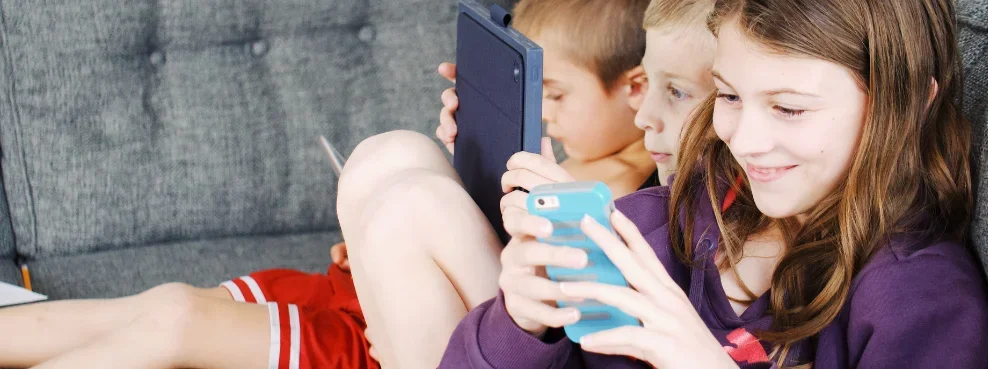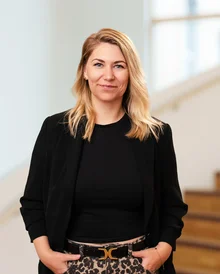Media consumption by children: Many parents underestimate the dangers
UW/H research project sheds light on harmful media consumption by young children and, together with paediatricians, launches a Germany-wide awareness campaign in which the doctors call on parents to help.

Which parents of small children don't know the situation: the dishes are piling up in the kitchen, the mountain of laundry is getting bigger and bigger and dinner hasn't been cooked yet either. At the same time, our children demand constant attention and are looking for closeness and interaction. As we all know, there are only 24 hours in a day, so children are often "parked" in front of the TV or tablet - which guarantees distraction. Even in early childhood, media acts like a magnet for the little ones.
According to experts, many parents underestimate this: Too much media consumption can cause lasting damage to young children's health. According to paediatricians and scientists Dr Silke Schwarz and Prof. Dr David Martin from Witten/Herdecke University (UW/H), excessive media use is associated with numerous negative health effects, especially in the first years of life. Examples include attachment and developmental disorders, as well as negative effects on language development. For this reason, the physicians launched the unique, Germany-wide intervention study "Screen-free until 3" from 1 June 2022 to investigate the effects of media consumption on children under the age of three and at the same time draw attention to the health risks posed by screen media.
Parents make an important contribution
The study is being conducted in close cooperation with the German Association of Paediatricians and Adolescent Doctors (BVKJ): As part of the study, half a million parents of children born on or after 1 January 2022 will receive a signal sticker to be stuck in the yellow U booklet during the mandatory U5 screening examination. This signal sticker sticks out of the U booklet like a bookmark and reminds parents with the slogan "Screen-free until 3" to keep their children away from screen media as much as possible until the age of 3.
"The first three years are formative for development. In terms of development, one hour in early childhood is equivalent to days or even months in later life. Every hour of undisturbed, playful self-development in the toddler years is literally worth its weight in gold. Over two years, we have developed a concept that is as simple but effective as possible, combining the professional authority of a paediatrician with signal stickers and a web presence. The focus is on direct educational work," says Silke Schwarz, underlining the great importance of "Screen-free until 3".
The practice app "My paediatrician", which is already used by many parents, asks them questions about the use of screen media and their children's development during early detection examinations. The first results are expected at the beginning of next year. As participation in the study is not mandatory, the initiators are relying on the practices: "The enthusiastic response from paediatricians gives us hope that many will take part, as they don't have to do more than speak a concise sentence to the parents and stick the signal sticker in the yellow booklet. The doctors in the control group don't have to do anything. Parents can make an important contribution to the health of our children by providing us with anonymised data on media consumption," says David Martin.
Parents can find materials, advice and tips on how to deal with screen media on a project website. The various facets of child development such as language acquisition, bonding and creativity are placed in the context of media consumption and critically scrutinised, and alternatives to media consumption are also presented: www.bildschirmfrei-bis-3.de
Background information:
"Screen-free until 3" is a Germany-wide, randomised study of the effectiveness of an intervention in the use of screen media in routine care at the paediatrician (early detection examinations). The quantitative evaluation of the use of digital screen media in families and general early childhood development is carried out by means of pre-/post-surveys using the BVKJ's "My paediatrician" app. In addition, multi-centre, qualitative surveys of practice staff and participating parents will be conducted. The aim of the study: "Screen-free until 3" means that young parents are better informed and consequently do not keep young children under the age of three busy with digital devices. This secondarily reduces the rate of screen media-related illnesses by reducing screen time and thus improving socio-emotional, linguistic and fine and gross motor development.
Photos for download
Contact person

Svenja Malessa
Press Officer
Administration | Communication & Marketing
Alfred-Herrhausen-Straße 48
58455 Witten
Room number: 2.F05

